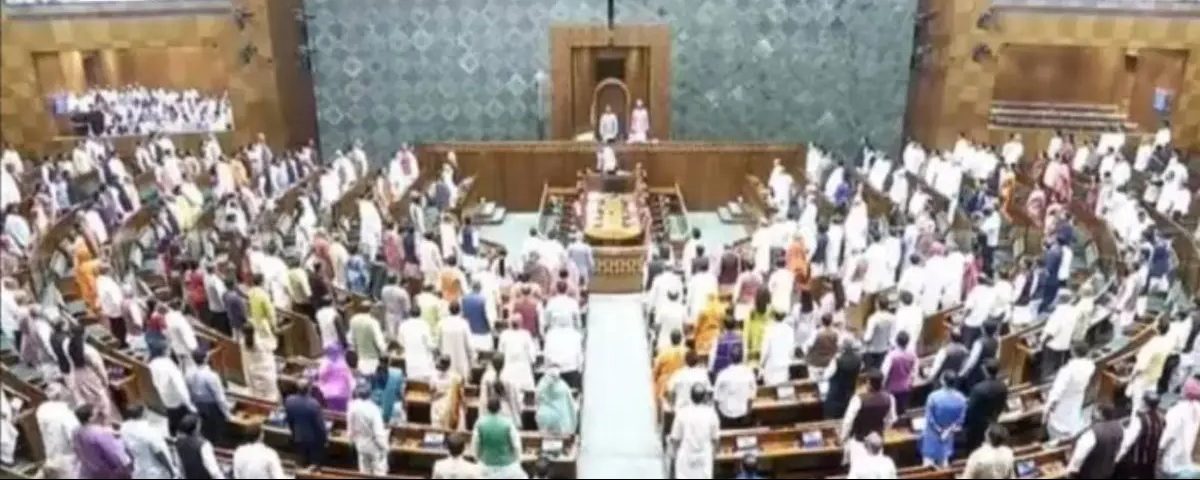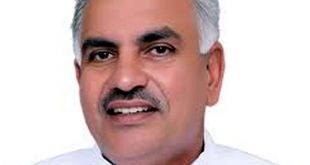What is Joint Parliamentary Committee: The central government on Thursday introduced the Waqf Act Amendment Bill 2024 in the Lok Sabha. However, after the protest, it has been decided to send it to the Joint Parliamentary Committee. After objections from the opposition parties, Union Minority Welfare Minister Kiren Rijiju proposed to hand it over to the Joint Parliamentary Committee.
After this, Lok Sabha Speaker Om Birla said that he will talk to the leaders of all the parties and form a joint parliamentary committee. In such a situation, it is important to know what is a joint parliamentary committee and when and how it is formed and what are its functions and powers. Know the answers to all the important questions related to it.
What is a Parliamentary Committee?
Parliament has a lot of work to do including legislative and other matters. It is not possible to consider all matters in depth, in such a situation special committees are formed to perform various tasks. Different types of committees can be formed for different purposes.
Temporary and Permanent Committees
There are mainly two types of parliamentary committees, temporary or ad hoc and standing committees. Ad hoc committees are appointed for a specific purpose and are automatically dissolved after completing their work.
of the Joint Parliamentary Committee
Purpose: In the Indian parliamentary system, the Joint Parliamentary Committee is a powerful investigative body, which has many powers. Members of many parties participate in it. Usually a Joint Parliamentary Committee is formed to investigate the provisions of a bill or an issue or scam.
structure: Ad hoc committees mainly include select and joint parliamentary committees. Joint Parliamentary Committee is formed for in-depth scrutiny of any bill or issue. It includes members of both the Houses of Rajya Sabha and Lok Sabha.
Constitution: For the formation of JPC i.e. Joint Parliamentary Committee, a resolution is passed by one house of the Parliament and consent is taken from the other house. After this, the parties put the names of their members before the JPC.
Number of members: The number of members in the Joint Parliamentary Committee is not fixed, but at the time of its formation, care is taken to ensure that members of maximum number of parties participate in it. Generally, the majority or the largest party has the most members in the committee. The Lok Sabha Speaker selects the chairman of the committee.
Powers: The JPC has the power to summon and question any person, body or party to collect evidence and facts relevant to the purpose for which it has been constituted. It also has the right to collect evidence related to the case in any manner whatsoever.
Privacy: The proceedings and findings of the committee are kept confidential except in matters of public interest. The government can withdraw documents related to the security of the state or the country if it wishes.
Disintegration: The Joint Parliamentary Committee has a maximum time limit of three months to investigate any matter. After submitting the investigation report, the committee automatically ceases to exist.
Report: After submitting the report on the subject, the Joint Committee automatically dissolves. The government is not bound to act on the committee's report. If it wishes, it can decide to initiate an inquiry based on the report at its discretion. The government has to report on the action taken on the basis of the JPC's recommendations.
Debate in Parliament: Based on the government's response, the committees submit action reports to the Parliament. These reports can be discussed and questioned in the Parliament.
Which cases were investigated?
Till now JPC has investigated many cases in the country. Following are some high-profile cases: –
- Bofors Scandal (1987)
- Harshad Mehta Stock Market Scam (1992)
- Ketan Parekh Stock Market Scam (2001)
- National Register of Citizens (NRC, 2016)
- Personal Data Protection Bill (2019)
When did the demand arise recently?
On Thursday, the central government recommended the formation of a joint parliamentary committee on the subject of the Waqf Act Amendment Bill. After the results of the recent Lok Sabha elections, Rahul Gandhi demanded a JPC inquiry into the fall in the stock market, which was rejected. Earlier, the opposition parties had also demanded a JPC inquiry into the allegations against the Adani Group. The demand for the formation of a JPC has been made from time to time on various issues.
 look news india
look news india

